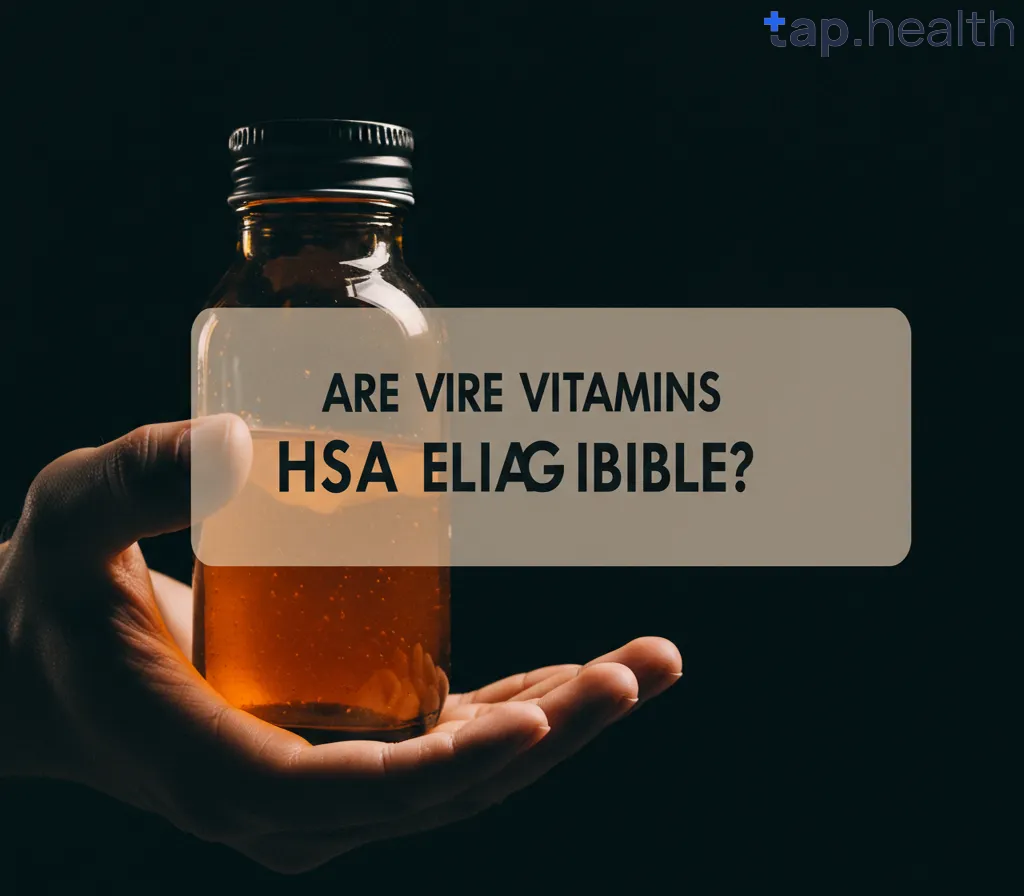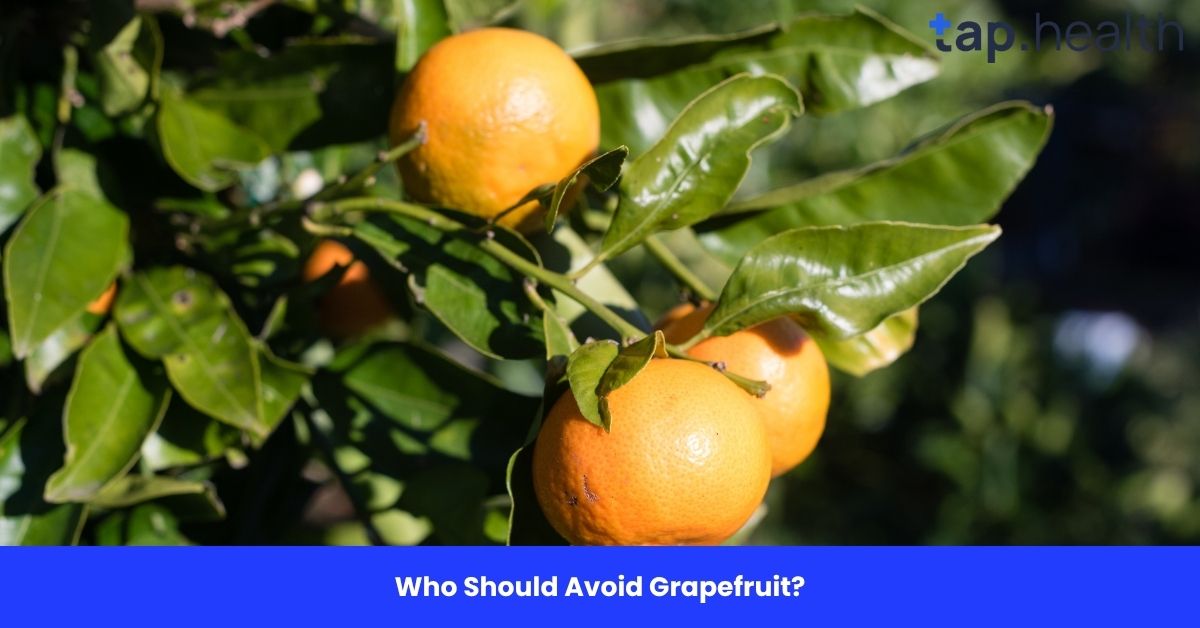A Health Savings Account (HSA) can be a great way to save money on healthcare expenses, but when it comes to things like vitamins and supplements, the rules can be a bit confusing. Can you use your HSA funds to pay for vitamins? Are all vitamins eligible, or only certain types? And how do you know if a product qualifies for reimbursement?
In this article, we will dive deep into whether vitamins are HSA eligible, what types of products qualify, and how you can use your HSA funds effectively. By the end, you’ll have a clear understanding of the guidelines for using your HSA for vitamins and supplements, helping you make the most of your savings.
What is an HSA?
Before we dive into the specifics of whether vitamins are HSA eligible, it’s important to understand what an HSA is and how it works.
A Health Savings Account (HSA) is a tax-advantaged account that allows individuals to save money for medical expenses. It is available to those who have a High Deductible Health Plan (HDHP), which is a type of insurance plan with higher deductibles but lower premiums.
HSAs offer several key benefits:
- Tax Deductibility: Contributions to your HSA are tax-deductible, reducing your taxable income.
- Tax-Free Growth: The money in your HSA grows tax-free, meaning you won’t pay taxes on any interest or investment gains.
- Tax-Free Withdrawals: If you use your HSA funds for qualified medical expenses, your withdrawals are also tax-free.
HSAs can be used for a wide variety of medical costs, including doctor visits, prescriptions, dental care, and even some alternative treatments. But the question remains—are vitamins included as qualified expenses?
Are Vitamins HSA Eligible?
Generally speaking, vitamins and supplements are not covered under HSA guidelines, as they are considered to be “general health” products rather than medically necessary. However, there are exceptions, and it depends on the type of vitamin or supplement, how it is prescribed, and whether it’s used to treat a specific medical condition.
1. Prescription Vitamins and Supplements
If a doctor prescribes a vitamin or supplement for a specific medical condition, it may qualify as an HSA-eligible expense. For example, if a doctor prescribes a certain type of vitamin D for a deficiency or recommends folic acid for pregnancy, these vitamins may be eligible for reimbursement.
The key is that they must be medically necessary, and you’ll need to have documentation to prove that the product is being used to treat a specific health condition. Over-the-counter (OTC) vitamins that are not medically prescribed generally do not qualify for HSA reimbursement.
2. Non-Prescription Vitamins
Non-prescription vitamins and supplements, like the ones you find at your local pharmacy or health store, typically do not qualify as HSA expenses. While they may be useful for general health, they do not meet the requirements set by the IRS for HSA eligibility because they are not prescribed by a healthcare provider to treat or prevent a specific medical condition.
For example, a daily multivitamin, which is often taken for general wellness, would generally not qualify for HSA reimbursement. The IRS only allows HSA funds to be used for medical expenses that are directly related to the diagnosis, treatment, or prevention of a medical condition.
3. Vitamins and Supplements for Specific Health Conditions
There are some instances where vitamins or supplements may be eligible if they are used to treat a specific medical condition. For instance, if a person has a nutritional deficiency, such as Vitamin D deficiency, the doctor may recommend a high-dose Vitamin D supplement. In this case, the cost of the vitamin might be covered by the HSA, as it’s being used to treat a specific medical issue.
To qualify for reimbursement in these cases, you’ll need a prescription from your doctor. Without a prescription, you cannot use your HSA funds to purchase these products, even if they are intended for medical use.
What Are the Rules for Using HSA Funds for Vitamins?
The rules governing what you can and cannot purchase with your HSA funds are outlined by the IRS. To be eligible for reimbursement, an item must be used for the treatment or prevention of a specific medical condition. Here’s what you need to know:
1. A Doctor’s Prescription is Key
For a vitamin or supplement to be HSA eligible, you generally need a prescription from your doctor. If a healthcare professional prescribes a vitamin to treat a specific condition, it becomes a medical expense and can be paid for with HSA funds. Without a prescription, vitamins typically fall into the category of personal wellness and are not considered eligible expenses.
2. Documentation is Required
If you are planning to use your HSA to purchase vitamins or supplements, it’s important to keep thorough records. This includes doctor’s notes, prescriptions, and any receipts. The IRS may require you to provide documentation to show that the product was purchased to treat or prevent a medical condition. Always keep copies of any relevant paperwork, especially if you plan to submit a claim for reimbursement.
3. Over-the-Counter (OTC) Vitamins Are Not Eligible
Without a prescription, OTC vitamins (including those you can buy in stores without a doctor’s recommendation) are not HSA eligible. Even if you believe they are helpful for general health, unless your healthcare provider has prescribed them for a specific medical reason, they are not covered by HSA guidelines.
Which Types of Vitamins Are HSA Eligible?
While most vitamins and supplements are not eligible for HSA reimbursement, there are some that could be under certain circumstances. Here’s a breakdown of common types of vitamins and supplements and when they might qualify for HSA:
1. Vitamin D
Vitamin D supplements are sometimes prescribed to treat conditions like osteoporosis or Vitamin D deficiency. If your doctor prescribes Vitamin D to treat a medical condition, the cost of the vitamin may be eligible for HSA reimbursement. However, an over-the-counter Vitamin D supplement that is taken for general health would not qualify.
2. Folic Acid
Folic acid is commonly prescribed for women who are pregnant or planning to become pregnant. It’s often recommended to prevent birth defects in the baby. Folic acid supplements are HSA eligible when prescribed by a doctor for pregnancy or to treat a deficiency.
3. Iron Supplements
Iron supplements are often prescribed for people with iron-deficiency anemia or other blood-related conditions. If your doctor recommends iron supplements to treat a deficiency, you may be able to use your HSA to purchase them. However, over-the-counter iron supplements taken for general health would not qualify.
4. Calcium Supplements
Calcium supplements are commonly prescribed to individuals with osteoporosis or other bone health issues. If your doctor recommends calcium for a medical reason, you may be able to use your HSA funds to purchase it. Again, over-the-counter calcium for general use is not eligible.
5. Prenatal Vitamins
Prenatal vitamins are often prescribed to women who are pregnant or planning to become pregnant. These supplements are specifically designed to support the health of the mother and baby. If prescribed by a doctor, prenatal vitamins are generally HSA eligible, as they are used for medical purposes.
What Happens If I Use HSA Funds for Ineligible Vitamins?
If you use your HSA funds to purchase vitamins that are not eligible, you could face consequences. The IRS may require you to pay taxes on the amount you used for ineligible expenses. Additionally, you may incur a penalty for using your HSA funds incorrectly. Here’s what can happen:
1. Tax Penalties
If you use your HSA funds for a non-qualified purchase, the amount will be included in your taxable income. You will also be required to pay taxes on that amount, which could result in an unexpected tax bill at the end of the year.
2. Additional Penalty Fees
In some cases, the IRS may impose a penalty fee for using your HSA funds on non-eligible expenses. This is typically a 20% penalty for non-qualified expenses, which is higher than the penalty for early withdrawals (which is usually 10%).
Can You Use Your HSA for Other Health Products?
Yes, in addition to vitamins and supplements, HSA funds can be used for a wide variety of health-related products. These include:
- Prescription medications
- Doctor visits
- Dental and vision care
- Chiropractic care
- Certain medical devices like thermometers or blood glucose monitors
- First aid supplies
It’s important to verify that any product or service you plan to use with your HSA is qualified by checking the IRS guidelines or asking your HSA administrator for clarification.
Frequently Asked Questions (FAQs) on Are Vitamins HSA Eligible?
1. Can I use my HSA for vitamins without a prescription?
No, you cannot use your HSA for most over-the-counter vitamins or supplements without a prescription. For a vitamin to be HSA eligible, it must be prescribed by a doctor for a specific medical condition.
2. Are prenatal vitamins HSA eligible?
Yes, prenatal vitamins are HSA eligible when prescribed by a doctor. They are often prescribed to support pregnancy and prevent birth defects.
3. Can I buy vitamin water or other vitamin-infused drinks with my HSA?
No, vitamin-infused waters and drinks are generally not eligible for HSA reimbursement unless they are prescribed by a doctor for a medical condition. These products are seen as general wellness items and do not qualify for HSA funds.
4. How can I know if a vitamin or supplement is eligible for my HSA?
To ensure a vitamin or supplement is eligible for HSA reimbursement, you must have a prescription from a doctor, and the product must be intended to treat or prevent a medical condition. Always check the IRS guidelines or consult your HSA administrator for clarification.
5. What happens if I use my HSA for ineligible items?
If you use your HSA for ineligible items, you may be required to pay taxes on the amount spent and face a 20% penalty fee for the non-qualified expenses. Always verify eligibility before making a purchase with your HSA.
Conclusion:
While vitamins are generally not HSA eligible unless prescribed by a doctor for a specific medical condition, there are some exceptions. If your doctor prescribes vitamins like Vitamin D, iron, or folic acid for treating deficiencies or health conditions, you may be able to use your HSA to pay for them. Be sure to always have proper documentation, including prescriptions and receipts, to ensure that your HSA funds are used correctly.



